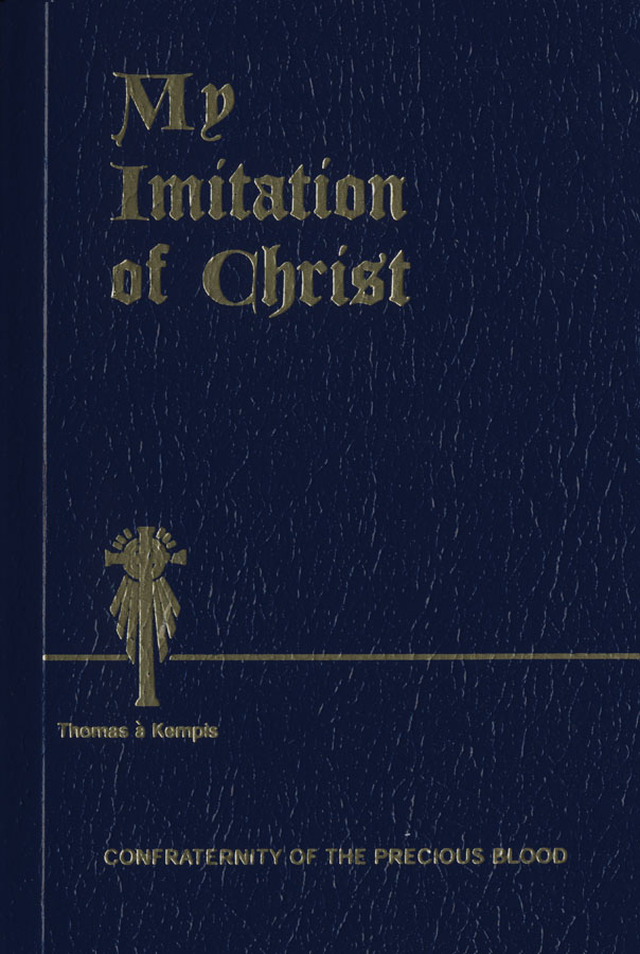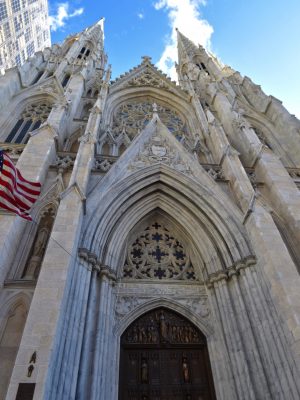A Pure and Entire Resignation of Ourselves for Obtaining Freedom of Heart
Christ:
Son, leave thyself and thou shalt find Me. Stand without choice or any self-seeking, and thou shalt always gain.
For greater grace shall always be added to thee irrevocably once thou has given up thyself.
Disciple:
Lord, how often shall I resign myself and in what things shall I leave myself?
Christ:
Always and at all times, as in little, so also in great: I make no exception, but will have thee to be found in all things divested of thyself.
Otherwise how canst thou be Mine and I thine, unless thou be both within and without freed from all self-will?
The sooner thou effectest this the better will it be for thee; and the more fully and sincerely thou dost it the more wilt thou please Me and the more shalt thou gain.
Some there are that resign themselves, but it is with some exception, for they do not trust wholly to God, and, therefore, are busy to provide for themselves.
Some also, at first, offer all; but afterward, being assaulted by temptation, return again to what they left, and, therefore, they make no progress in virtue.
These shall not attain to the true liberty of a pure heart, nor to the grace of a delightful familiarity with Me, unless they first entirely resign themselves and offer themselves a daily sacrifice to Me, without which there neither is nor can there be a fruitful union.
I have often said to thee and I repeat it again, forsake thyself, resign thyself, and thou shalt enjoy a great inward peace. – Matt. XVI. 24.
Give all for all; seek nothing, call for nothing back; abide purely and with a full confidence in Me, and thou shalt possess Me.
Thou shalt be at liberty within thy own heart, and darkness shall no overwhelm thee.
Aim only at this, pray for this, desire this, that thou mayst be divested of all self-seeking; and, thus naked, follow thy naked Jesus; that thou mayst die to thyself and live eternally to Me.
Then shall vanish all vain imagination, all evil disturbances and superfluous cares.
Then also immoderate fear shall leave thee and inordinate love shall die.
The Good Government of Ourselves in Outward Things and Having Recourse to God in Dangers
Christ:
Son, thou must diligently make it thy aim, that in every place and in every action, or outward employment, thou be inwardly free and master of thyself, and that all things be under thee and not thou under them.
That thou mayest be lord and ruler of thy actions, not a slave or bondsman.
But rather a freeman and a true Hebrew, transferred to the lot and to the liberty of the children of God. -Rom. VIII. 21.
Who stand above the things present and contemplate those that are eternal.
Who look upon transitory things with the left eye, and with the right the things of heaven.
Who suffer not themselves to be drawn away by temporal things to cleave to them, but rather draw these things to that end, for which they were ordained by God and appointed by that sovereign artist, who has left nothing in all His works but what is regular and orderly.
If likewise, in all events, thou rule not thyself by the outward appearance, nor look on what thou seest or hearest with a carnal eye, but presently, on every occasion, dost enter, like Moses, into the tabernacle, to consult the Lord, thou shalt sometimes hear the divine answer and come out instructed in many things, present and to come. For Moses always had recourse to the tabernacle, for the deciding of all doubts and questions, and fled to the help of prayer against the dangers and wickedness of men.
So must thou in like manner fly to the closet of thy heart, and there most earnestly implore the divine assistance. -Matt. VI. 6.
For Josue, and the children of Israel, as we read, were therefore deceived by the Gabaonites because they did not first consult the Lord, but too easily giving credit to fair words were deluded with counterfeit piety. -Josue IX. 15.
This article is taken from a chapter in My Imitation of Christ by Thomas à Kempis which is available from TAN Books.









